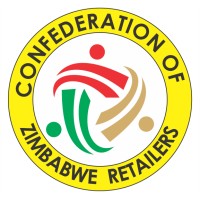Innocent Sibonginkosi Ncube
The Confederation of Zimbabwe Retailers (CZR) has put forward a three-tier presumptive tax system aimed at small businesses in Zimbabwe.
This initiative seeks to address the increasing informalization of the economy and create a more equitable tax regime for small enterprises, thereby enhancing national fiscal revenue.
Structure of the Tax System
The proposed tax system categorizes small businesses into three distinct tiers based on their annual turnover and operational scale:
- First Tier:
- Annual Turnover: Up to US$15,000.
- Examples: Small tuckshops and market stalls.
- Tax: US$500 annually.
- Second Tier:
- Annual Turnover: Between US$15,000 and US$50,000.
- Examples: Larger tuckshops and small stores.
- Tax: US$1,500 annually.
- Third Tier:
- Annual Turnover: Between US$50,000 and US$100,000.
- Examples: Larger tuckshops and partitioned mall stores.
- Tax: US$3,000 annually.
“This three-tier presumptive tax structure promotes fairness and sustainability, ensuring MSMEs contribute to the economy in a manner that aligns with their financial capacity while simplifying tax compliance,” said CRZ.
This tiered approach is designed to reflect the varying capacities of businesses and aims to simplify tax compliance while ensuring that all businesses contribute fairly to the economy.
Rationale Behind the Proposal
The CZR argues that this structured taxation approach is essential for integrating Micro, Small, and Medium Enterprises (MSMEs) into Zimbabwe’s economic framework. Currently, a staggering 71% of Zimbabwean businesses operate informally, which places an undue tax burden on the formal sector. The CZR believes that by adopting this model, similar to one successfully implemented in Tanzania, Zimbabwe could significantly increase its tax revenue and stimulate economic growth.
Expected Outcomes
The CZR estimates that the implementation of this tax system could generate over US$50 million annually from Harare’s central business district alone, with potential national revenue reaching up to US$200 million as the system expands to other provinces. The proposal also includes integrating Value Added Tax (VAT) into the presumptive tax model, simplifying compliance for businesses and reducing administrative costs for the Zimbabwe Revenue Authority (ZIMRA).
“By harnessing the growing informal sector through this tiered presumptive tax system, the Government stands to generate significant revenue.
“Our estimates suggest that, initially, Harare’s central business district (CBD) alone could generate over US$50 million annually through the successful implementation of this system. As the system is expanded to other provinces, total national revenue could increase up to US$200 million annually,” says CRZ.
Conclusion
The CZR’s proposal for a three-tier presumptive tax system represents a strategic effort to formalize the informal sector in Zimbabwe, ensuring that small businesses contribute to national growth while benefiting from a more structured and supportive tax environment. With the government’s backing, this initiative could pave the way for enhanced economic development and increased tax compliance among MSMEs.
Zim GBC News©2024


